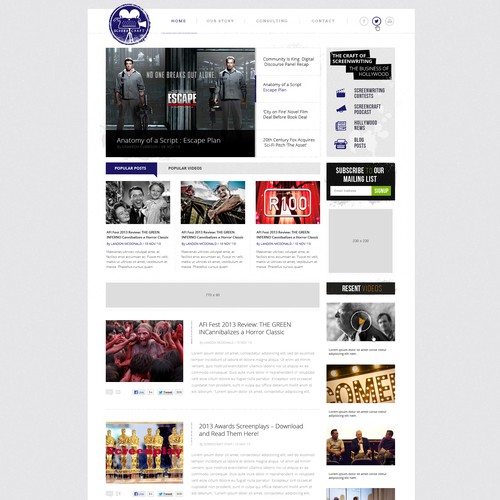The Ultimate Guide To News Websites
The Ultimate Guide To News Websites
Blog Article
The Best Guide To News Websites
Table of ContentsWhat Does News Websites Mean?3 Easy Facts About News Websites ShownHow News Websites can Save You Time, Stress, and Money.The Of News WebsitesHow News Websites can Save You Time, Stress, and Money.
It was down in the UK and Brazil yet up a few other nations, such as Greece, Bulgaria, and Poland (News Websites). This year, for the very first time, we inquired about the different manner ins which people stay clear of the information and found that around half of avoiders (53%) were trying to do so in a broad-brush or regular means for instance, by switching off the radio when the news began, or by scrolling past the information in social mediae.g. scrolling past information, transforming channels when information begins. of avoiders examine sources less often. e.g. limit to specific times of day, turning off notices, etc. of avoiders prevent some subjects. e.g. subjects that lower state of mind or increase stress and anxiety. You said that you try to actively avoid news.

I'm probably picking to find out more light-hearted stories than I used to currently. M, 51, UK Switching my back on news is the only means I feel I can deal often. I have to knowingly make the effort to transform away for my very own mental health.
How News Websites can Save You Time, Stress, and Money.
Careful avoidance of Ukraine information was highest in many of the nations closest to the conflict, enhancing findings from our extra study in 2015, not long after the war had actually begun. Our information may not suggest an absence of interest in Ukraine from neighboring countries yet rather a need to manage time or safeguard psychological health and wellness from the really genuine scaries of war.
Contrasting Finland with a politically polarised country such as the United States (see following chart) that is less influenced by the war, we discover a very different pattern of subject evasion. In the United States, we locate that consumers are most likely to avoid topics such as nationwide politics and social justice, where arguments over concerns such as gender, sexuality, and race have come to be highly politicised.
American politics are quite toxic nowadays. I find occasionally that I have to disconnect from stories that simply make me mad. F, 61, USA For have a peek at this site some people, bitter and disruptive political discussions are a reason to switch off information entirely, but for some political upholders, avoidance is often about shutting out viewpoints you do not intend to hear.

The News Websites Statements
Some are seeking to make news more available for hard-to-reach groups, widening the information program, commissioning more motivating or favorable news, or embracing positive or remedies journalism that provide people a sense of hope or personal firm. In our survey this year, we asked respondents concerning their passion in these different methods.
This explains why stories like Ukraine or national politics execute well with information regulars but can at the same time transform much less interested individuals away (News Websites). Discerning avoiders are much less interested in all types of news than non-avoiders but in loved one terms they do appear to be a lot more thinking about positive or solutions-based news

What Does News Websites Do?
2023). This might hold true in the moment, however gradually it appears to be leaving many individuals vacant and less pleased, which may be weakening our connection with and depend on in the news. Across markets, overall rely on news (40%) and continue reading this trust in the resources individuals use themselves (46%) are down by an additionally 2 portion points this year.
Through the rear-view mirror, the COVID-19 trust fund bump is plainly visible in the following graph, though the instructions of travel after that has actually been mixed. Sometimes (e.g. Finland), the trust rise has been maintained, while in others the upturn looks even more like a blip in a tale of ongoing long-lasting decline.
Several of the greatest reported levels of media objection are discovered in countries with highest possible degrees of suspect, such as Greece, the Philippines, the United States, France, and the United Kingdom. The most affordable degrees of media criticism are often in those with greater levels of trust fund, such as Finland, Norway, Denmark, and Japan.
How News Websites can Save You Time, Stress, and Money.
This year we asked respondents concerning their choices for text, audio and video when taking in information online. Usually, we find that the majority still choose to review the information (57%), instead of watch (30%) or listen to it (13%), but younger people (under-35s) are a lot more most likely to pay attention (17%) than older teams.
Behind the averages we find considerable and unusual nation distinctions. In markets with a solid analysis practice, such as Finland and the UK, around eight in ten still prefer to check out on the internet information, however in India and Thailand, around 4 in 10 (40%) claim they favor to watch news online, and in the Philippines that proportion is over half (52%).
Report this page